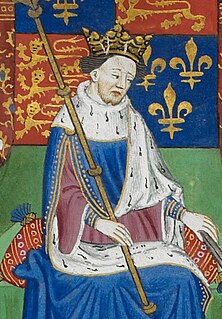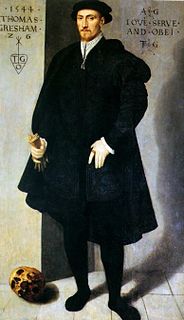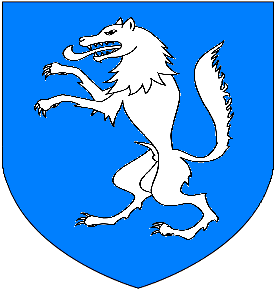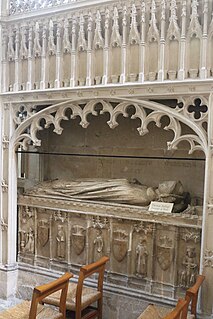
Edward IV was King of England from 4 March 1461 to 3 October 1470, then again from 11 April 1471 until his death in 1483. He was a central figure in the Wars of the Roses, a series of civil wars in England fought between the Yorkist and Lancastrian factions between 1455 and 1487.

Henry VI was King of England and Lord of Ireland from 1422 to 1461 and again from 1470 to 1471, and disputed King of France from 1422 to 1453. The only child of Henry V, he succeeded to the English throne at the age of nine months upon his father's death, and succeeded to the French throne on the death of his maternal grandfather, Charles VI, shortly afterwards.

Elizabeth Woodville was Queen of England from her marriage to King Edward IV on 1 May 1464 until Edward was deposed on 3 October 1470, and again from Edward's resumption of the throne on 11 April 1471 until his death on 9 April 1483.

Anne Neville was an English queen, the younger of the two daughters and co-heiresses of Richard Neville, 16th Earl of Warwick. She became Princess of Wales as the wife of Edward of Westminster and then Queen of England as the wife of King Richard III.

Sir Thomas Gresham the Elder, was an English merchant and financier who acted on behalf of King Edward VI (1547–1553) and Edward's half-sisters, queens Mary I (1553–1558) and Elizabeth I (1558–1603).

King's College is a constituent college of the University of Cambridge in Cambridge, England. Formally The King's College of Our Lady and Saint Nicholas in Cambridge, the college lies beside the River Cam and faces out onto King's Parade in the centre of the city.

Queens' College is a constituent college of the University of Cambridge. Queens' is one of the oldest colleges of the university, founded in 1448 by Margaret of Anjou, and has some of the most iconic and recognisable buildings in Cambridge. The college spans the river Cam, colloquially referred to as the "light side" and the "dark side", with the Mathematical Bridge connecting the two.

Richard Farmer FRS FSA (1735–1797) was a Shakespearean scholar and Master of Emmanuel College, Cambridge. He is known for his Essay on the Learning of Shakespeare (1767), in which he maintained that Shakespeare's knowledge of the classics was through translations, the errors of which he reproduced.

William Smyth was Bishop of Coventry and Lichfield from 1493 to 1496 and then Bishop of Lincoln until his death. He held political offices, the most important being Lord President of the Council of Wales and the Marches. He became very wealthy and was a benefactor of a number of institutions. He was a co-founder of Brasenose College, Oxford and endowed a grammar school in the village of his birth in Lancashire.
Richard Sampson was an English clergyman and composer of sacred music, who was Anglican bishop of Chichester and subsequently of Coventry and Lichfield.
Events from the 1440s in England.
Events from the 1480s in England. This decade marks the beginning of the Tudor period.
John Gunthorpe was an English administrator, Clerk of the Parliament, Keeper of the Privy Seal and Dean of Wells.

St George's Chapel at Windsor Castle in England is a chapel built in the late-medieval Perpendicular Gothic style. It is both a Royal Peculiar and the Chapel of the Order of the Garter. It is located in the Lower Ward of the castle. St George's castle chapel was originally founded in the 14th century by King Edward III and extensively enlarged in the late 15th century. It has been the scene of many royal services, weddings and, particularly in the 19th and 20th centuries, burials. Although occasional monarchs and their consorts were buried at the castle from the 15th century, it was not until the 19th century that St George's Chapel and the nearby Frogmore Gardens superseded Westminster Abbey as the chosen burial place for the British royal family. Windsor Castle is a principal residence of Queen Elizabeth II.
The Rt Rev. BrutusBabington (1558-1611) was an Englishman who became the Church of Ireland Bishop of Derry.

Gabriel Donne or Dunne was an English Cistercian monk and was the last Abbot of Buckfast Abbey in Devon, before the Dissolution of the Monasteries.

Thomas Boleyn, LL.B, , was the Master of Gonville Hall, Cambridge from 1454 to 1472, the seventh to hold that position. During the later 1440s, through three separate acts of foundation, he was one of the small group appointed to formulate the statutes of what became Queens' College in Cambridge. His brother Sir Geoffrey Boleyn, Lord Mayor of London 1457-58, was the great-grandfather of Anne Boleyn, Queen consort of England.

John Davies (1679–1732) was an English cleric and academic, known as a classical scholar, and President of Queens' College, Cambridge from 1717.

John Chambre (1470–1549) was an English churchman, academic and physician.
Humphrey Tyndall was an English churchman who became the President of Queens' College, Cambridge, Archdeacon of Stafford, Chancellor of Lichfield Cathedral and Dean of Ely.















